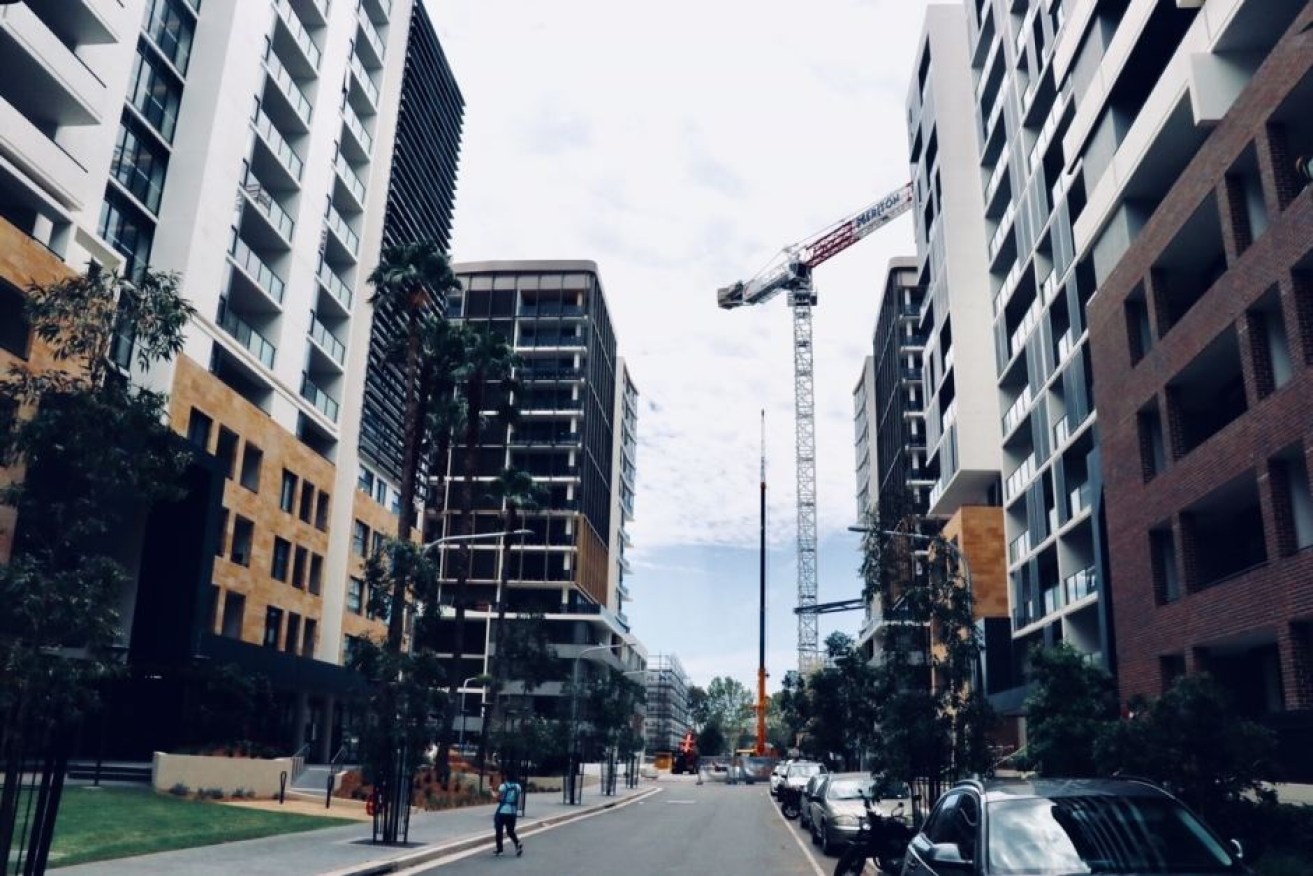Construction jobs to go as building approvals decline


Approvals for apartments were down almost 40 per cent on the same time last year. Photo: ABC (John Gunn)
While the real estate industry is hailing a property comeback, fresh data appears to show it will be a long road back to full recovery.
Building approvals were down more than 25 per cent in the year to June – the worst annual result for the sector since the post-GST building slump in the early 2000s, according to data from the Australian Bureau of Statistics.
And with more pain tipped to come in the construction sector, one economist has warned up to 100,000 construction jobs could be at risk, hampering the wage growth the Reserve Bank is so eagerly seeking to kickstart the economy.
Despite analysts tipping a rise of 0.2 per cent in June in approvals overall, they actually declined by 1.2 per cent for the month.
While approvals for houses rose slightly (0.4 per cent) in the month, they were still down almost 15 per cent for the year to June.
But the biggest drag on the sector is the troubled high-rise sector.
Approvals for “other dwellings” – which includes apartments and townhouses – fell 6.5 per cent in June, but were a whopping 39.3 per cent lower than a year earlier.
In New South Wales, the drop in approvals for blocks of four storeys or higher were down 50 per cent over the past two years.
That prompted UBS senior economist George Tharenou to say that approvals for high rises of four or more storeys had “collapsed”.
Maree Kilroy, economist at BIS Oxford Economics, said the plunge in approvals between the 2017-18 and 2018-19 financial years was the largest fall since the construction slump that followed the introduction of GST in 2000.
Ms Kilroy said the data represented a significant decline, and was the 12th straight month of year-on-year falls in total approvals.
BIS Economics is forecasting the downturn to continue for the rest of 2019, predicting approvals to finally bottom out by either the final quarter of 2019 or the March quarter of 2020.
But the apartment market will be more stubborn, Ms Kilroy said, due to weak demand and damaging publicity around defects in some high rises.
“There are several risks to attached dwellings – investor demand is at extremely low levels, developers require pre-sales to start construction and I would assume that build quality would also be a concern weighing on many buyers’ minds,” she said.
“We believe apartments will take longer to come back, especially high-density.”
Mr Tharenou said while optimism had returned to housing since the election, prompting predictions of a 10 per cent surge in home loans, “the residential construction outlook is still negative”. And that will have huge implications for employment.
Mr Tharenou said with dwelling investment likely to decline for at least a year “our tracking of construction job ads is consistent with [around] 100,000 jobs losses ahead”.
With that in mind, UBS believes the RBA will be forced to cuts rates by a further 50 basis points to 0.5 per cent by February.
AMP Capital senior economist Diana Mousina said falling housing construction would not only hit GDP growth over the next year, but also other industries, such as construction services and retail.
Tweet from @ShaneOliverAMP
AMP earlier this year predicted the building downturn would claim 60,000 jobs in 2019, with Ms Mousina predicting unemployment to hit 5.5 per cent over the next six months.








